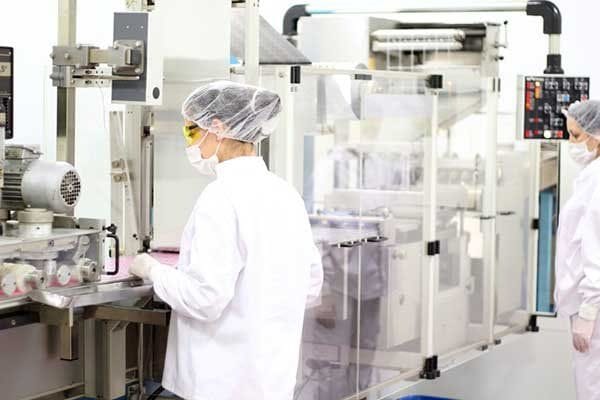
Pharmaceutical quality control training offers an obvious route forward to the pharmaceutical industry, but roles in that sector are not the only ones available to graduates. A number of industries need quality control professionals to ensure safe operations and quality product output, and could offer interesting career paths for you to take.
Curious about which non-pharmaceutical sectors might have opportunities for pharmaceutical quality assurance graduates? Here are a few examples that you might want to consider after you’re through with training.
The Chemical Sector Hires Graduates of Pharmaceutical Quality Assurance Courses
The chemical sector is absolutely enormous, encompassing all kinds of products created through combining and processing natural resources and ingredients. Salts, fertilizers, household cleaners, and many more products besides are all examples of useful goods that come out of this industry.
It is incredibly important that all kinds of chemical products are produced accurately, as even relatively small deviations can have dramatic consequences. A fertilizer that results in soil hitting the wrong pH level, for instance, could ruin an entire season’s worth of crops, and household cleaners that aren’t balanced correctly could cause burns to users. By employing trained quality assurance workers, the chemical sector helps ensure that its products are safe and effective for all to use.
The Petrochemical Sector Offers Speciality Work for Quality Assurance Graduates
Similar to the chemical sector, though a bit more specialized, the petrochemical sector presents an interesting destination for graduates of a pharmaceutical quality control program. Petrochemical companies produce many products, all derived from natural gas and petroleum. Some examples include industrial alcohols; solvents; plastics; and plastic fibers like nylon, polyester, and more.
As with the broader chemical sector, accuracy in petrochemical work is hugely important for producing viable goods and materials. There’s an argument to be made that the stakes are particularly high with petrochemical work, as its output is relied upon by billions of businesses and consumers around the world for many different critical uses.
 Plastics and other petrochemical products are hugely important around the world
Plastics and other petrochemical products are hugely important around the world
Despite this, the techniques and equipment used by the petrochemical sector should be quite familiar to graduates of pharmaceutical quality assurance programs, allowing for a rather straightforward transition. Choose a course which involves a great deal of hands-on work with industry-standard equipment and you should have little difficulty finding success.
Public Sector Work is Available for Graduates of Pharmaceutical Quality Control Programs
Government work can offer valuable stability and great benefits, and there are some truly great public sector roles available to capable graduates of a pharmaceutical quality assurance program. Health departments, the education space, and publicly owned utilities are all examples of areas that often seek out capable pharmaceutical quality control professionals.
Working in the public sector, you might even find yourself employed as an agent tasked with quality control inspections of work produced by local companies. Someone, after all, needs to ensure that the work produced by private entities is of the quality they claim it is. Training in a program like the one offered by Oxford College, which is led by expert instructors and produces in-demand, highly skilled graduates, can be key to securing this type of challenging and fulfilling role.
 Graduates of top programs could find valuable work in quality control for the government
Graduates of top programs could find valuable work in quality control for the government
Are you ready to take on interesting and fulfilling work in quality assurance?
Contact Oxford College to learn about our pharmaceutical quality assurance course!






